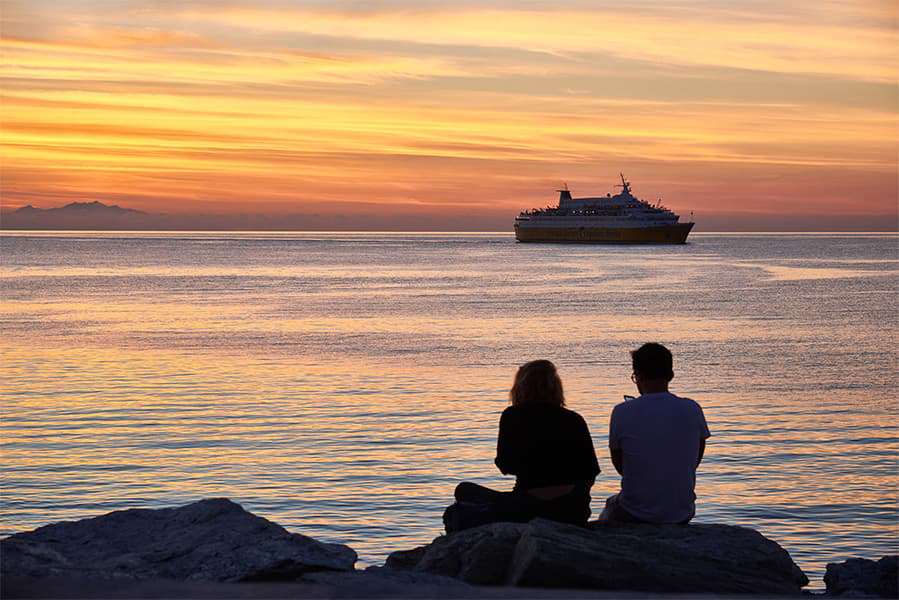Tateyama – Izu Oshima
Ferry to Izu Islands
Tateyama – Izu Oshima
Ferry to Izu Islands

The Tateyama Izu Oshima ferry route is currently not sailing. Tateyama Izu Oshima sailing durations and frequency may vary from season to season. View our Deal Finder for alternative routes and compare prices, times and schedules.
More routes than anyone else.

Compare fares, times & routes in one place.
Change plans easily with flexi tickets.

Book e-tickets & manage trips in-app.
Live ship tracking & real-time updates.

Top-rated customer support when you need it.
Found off the south-eastern coast of Japan’s Izu peninsula is the small island of Izu-Oshima. This egg-shaped isle, its landscape defined by a black-rocked coastline and steep mountains overgrown with plant-life, is the closest of Tokyo’s border islands and has become a popular getaway retreat for those looking to escape the bustle of city life. The most famous landmark in Izu-Oshima is the Mount Mihara volcano at the heart of the island. The slopes of this towering mountain are permanently scarred by the eruption that rocked the region in 1986, and those brave enough to scale its heights will find that the crater at its peak still smoulders and rumbles with life. The island’s entire population is spread across six seafront villages at the base of the inland mountains. Oshima Town, the largest settlement and capital of the island, is found on the foothills that line the western coast. The white-walled, block-shaped apartment buildings here are synonymous with the Japanese seaside. They climb away from the edge of the Sagami Sea between a neat network of palm-lined streets which, as they approach the outskirts, become narrow roads that twist through the dense sub-tropical woodland. The town is known for its warm weather and the Kobo-hama Beach, a broad stretch of golden sand lined by seafood restaurants and lively bars. The Gojinka Hot Spring spa is another local highlight; its collection of baths and saunas open to weary travellers looking to ease the pain of their aching bones. The port in Oshima Town is located near the centre of town, at a point just south of a rocky waterfront area known locally as Nagane Cape. The ferry terminal here sits at the toe-end of a concrete wharf that juts into the shallows of the sea. This relatively large building, its façade defined by an overhang propped upon concrete pillars, is home to a number of passenger facilities including a ticket office, an indoor waiting hall, toilets and vending machines selling food and drink. Due to the small nature of the island and Izu Oshima’s status as the capital, travelling to and from the port is relatively easy. The 208 highway is the island’s major route. It cuts through the centre of Oshima Town before tracing an unbroken circle along the entire island coast, passing by both the town of Okata in the north and Habuminato in the south. Oshima Airport, offering services to the Japanese mainland, is just a ten-minute drive away too. A vast number of ferry routes currently operate from the port in Izu-Oshima throughout the week. Services hosted by Tokai Kisen sail in all directions to destinations across the Sagami Sea and beyond. Some lines travel north to the towns of Kurihama, Tateyama and the capital city of Tokyo on the Japanese mainland; others west to the Izu Peninsula and the cities of Atami, Ito and Inatori; still more hop south to the neighbouring islands of Toshima, Niijima, Shikinejima and Kozushima.